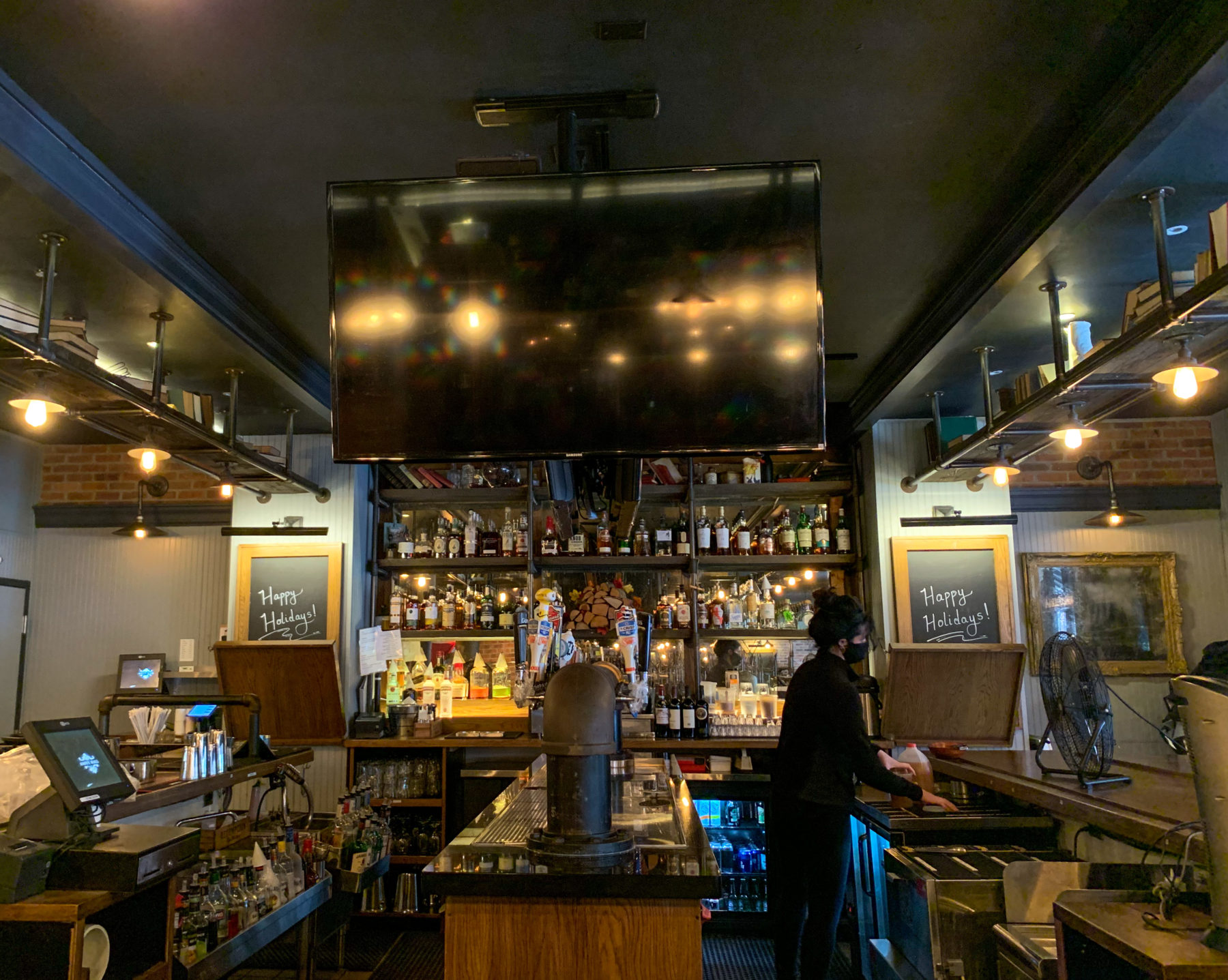For the first time in months, Josh Cohen, general manager of the Stumble Inn, a sports bar on the Upper East Side, was feeling hopeful.
It was mid-February, and Gov. Andrew Cuomo had just announced that the 10 p.m. curfew on New York City bars and restaurants would be extended to 11 p.m.
“I think it’s great,” said Cohen. “Every hour more that we get to stay open, and every day that we get to stay open, is a day that gets us closer to being back to where we were before the pandemic.”
With the 10 p.m. curfew, Cohen’s bar was struggling yet “keeping afloat,” he said. The extra hour gives him more hope.
“This is the first time that I have felt some sort of optimism that we are moving in a good direction, versus last time when I was thinking it would be likely we’d get shut down again,” he said. “I don’t feel that way now. But you know, I don’t have a crystal ball either.”
New York City’s sports bars, like so many businesses, have been hit hard by coronavirus restrictions. The curfew has been especially difficult for sports bars as they have had to send home customers in the middle of games and major events like the Super Bowl. The bars lose revenue and sports fans have an unsatisfying experience. While sports bar owners and fans would like an even later curfew, the extra hour will make a difference as March Madness and the spring sports season begin.

It will also be less awkward for bar managers like Raj Kumar, of All Stars Sports Bar and Grill just south of Columbus Circle. Sending paying customers away violated his standards of customer service etiquette and the lessons he usually tries to teach his employees. “I’d tell my staff members and servers in training not to rush customers, which we were doing obviously just to follow the state mandate,” Kumar said.
Other sports bar owners said they hated turning away customers when times were so difficult during the pandemic. “What we do in hospitality is be hospitable,” said Randy Adams, owner of Amity Hall Uptown on the West Side, adding that he found it “tough not to be able to deliver that on a daily basis.”
With the 11 p.m. curfew, fewer customers get rushed out the door before a game ends. “Usually 11-11:30 is pretty much the cap on all the games,” said Amity Hall Uptown’s general manager, James Wells. “I mean, unless there’s like a crazy overtime.”
Failure to abide by the pandemic related executive orders can cost bar and restaurant owners up to $10,000 in fines and a possible suspension of their liquor license. In order to reinstate their licenses, some establishments have had to pay as much as $50,000 in civil penalties, according to data from the governor’s office. As of mid-February, over 2,300 charges had been issued to restaurants and bars across New York state and the liquor licenses of 393 of the establishments had been suspended since the declaration of a state of emergency in March 2020.
In February, 19 City Council members sent Cuomo a letter calling on him to extend the curfew to midnight and increase indoor dining to 50% capacity. Cuomo later announced that as of March 10, indoor dining capacity would expand to 50%. A further extension of the current curfew, however, is not expected until late April.
Safety is a key reason for keeping the curfew earlier, said Jack Sterne, a spokesperson for Cuomo.
“As people stay longer and drink more, there is a higher risk that they [will] not wear masks, mingle and partake in other riskier actions that spread COVID,” Sterne said. “In addition, it’s common sense that if restaurants are an environment where COVID can spread, limiting the hours they operate limits the number of people who could potentially be exposed.”
The 11 p.m. curfew is disappointing to some like Kumar of the All Stars Bar and Grill, who said that staying open until midnight would be better for the bar especially with certain events like fights that run late.
Others are more satisfied. “I think 11:00 p.m. is fine,” said Wells of Amity Hall. “Hopefully it will go to midnight soon, but as of right now, I feel that the curfew is doing its job at keeping us safe.”
Fans would also like to see a later curfew. “The only thing I could hope for is that Cuomo comes out soon, and he puts the schedule to at least 12 or 1, at least. Because the restaurant industry won’t survive,” said Brian Buiza, a self-professed “die-hard Jets and Yankees fan” and a regular at All Stars Sports Bar & Grill.
The earlier curfew “absolutely” affected him, said Buiza. With a heavy sigh, he said that what he missed most was “just having a couple of beers with my guys, catching up, seeing my friends and watching sports. Simply being able to have a beer and wings without no problems.”
When asked if he was concerned about the spread of COVID-19 in sports bars, Buiza said he’s “not really” worried, because “people are safe, everyone is inside their little bubble.”
Bar managers hope the move from a 10 p.m. curfew to 11 p.m. will help repair the losses from the pandemic shutdown. Amity Hall has “lost a ton of money,” said Adams, declining to be more specific. He had expected that the extra hour would bring in at least “a couple hundred” dollars more each night. It has done so, confirmed assistant manager Wells, especially on weekends, which are more profitable.
With spring sports gearing up, Wells is hoping for even more growth.
“We’re really excited for the season,” he said. “We are taking as many reservations as possible and gearing up to be able to extend our patio for the spring and summer.” Wells added that Amity Hall Uptown is also working on hiring and training additional staff.
Despite the challenging circumstances and changing regulations, sports bar owners are optimistic things will continue to improve. “I personally think that when the dust settles, the hospitality industry will absolutely explode — in a good way,” said Adams.
Fans hope so, too. “It’s amazing the struggles that we’ve all gone through, and the losses I’m sure that we’ve all had, said Buiza. “But we’re New Yorkers and we’re still strong and we’re still here. God willing, hopefully everything gets better and New York City will get back to what it was: gritty, tough, New York City.”
About the author(s)
Ammal Hassan is a master’s student at Columbia Journalism School interested in lifestyle, beauty, fashion and culture reporting. She holds a bachelor’s degree in anthropology and history from the University of Sussex. Reach out via email: lah2215@columbia.edu and Twitter: @ammal_hassan



